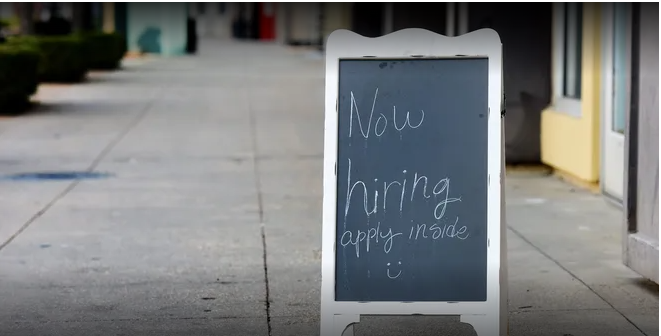
After losing her IT sales job in 2023, Jodi Robinett was confident she would find new employment quickly. However, more than a year later, she has submitted over 500 job applications, spent countless hours networking on LinkedIn, and even encountered a scam job offer. Despite her experience and qualifications, Robinett continues to face rejections and boilerplate responses for positions that pay significantly less than her previous role.
“I’ve never seen anything like this,” said Robinett, 55, from Kansas City. “I just want to work.”
Job Market Struggles Despite Strong Employment Data
While key economic indicators suggest a strong job market—layoffs remain low, and U.S. employers added 256,000 jobs in December—many job seekers are finding it increasingly difficult to secure employment. Hiring rates have slowed, and companies appear hesitant to bring on new talent.
“It’s gotten much harder to find a job in the last two-and-a-half years,” said Guy Berger, director of economic research at the Burning Glass Institute. “Not impossible, but relatively hard by historical standards.”
Continued claims for unemployment benefits reached 1.9 million as of January 11, marking the highest level since 2018 when excluding pandemic-related losses. Additionally, over 22% of unemployed Americans in December had been out of work for at least six months, up from 20% the previous year.
“People are stuck in jobs they want to leave because the market isn’t offering better opportunities,” Berger added. “But those who are unemployed and actively searching are feeling the most pressure.”
Prolonged Job Search a Reality for Many
Maurissa Joseph, 31, from Virginia, lost her human resources job in September and has yet to secure a new role. Unlike her previous job hunt in 2020, which lasted three months, she is now approaching five months of searching with no success.
“It’s definitely tough out here. I’ve never seen it like this,” said Joseph, who holds a bachelor’s degree in healthcare administration, a master’s in business administration, and is pursuing a doctorate in business administration.
Recent College Graduates Struggle to Enter the Workforce
New graduates are also feeling the impact of a sluggish hiring market. The Federal Reserve Bank of New York reports that unemployment for recent graduates stands at 5.3%, higher than the national average of 4%.
Emma Love, a recent University of Tennessee graduate, hoped her experience at the college newspaper would secure her a job in copy editing. However, after a month of searching and only one interview, she’s beginning to feel discouraged.
“It feels like I’m sending my resume into a void,” said Love, 21, from Knoxville, Tennessee. “I worked for three-and-a-half years to get a degree, and I want to use it.”
Kylan Simmons, 24, of Salt Lake City, has been job hunting since returning to the U.S. in April after graduating from Tallinn University in Estonia. Despite applying for multiple positions daily, he has yet to land a job.
“The job market is basically just guess and pray,” said Simmons, who currently lives with his parents to save on costs. However, mounting medical expenses due to temporary vision loss are eating into his savings.
“I’m lucky to have a roof over my head and food to eat,” Simmons added. “But I want to move forward with my life. I need a job to do that.”
A Tough Road Ahead for Job Seekers
As hiring rates remain below pre-pandemic levels, job seekers across industries face longer and more uncertain job searches. While economic indicators show stability, many workers—whether seasoned professionals or recent graduates—are struggling to find opportunities in an increasingly competitive market.
With companies cautious about hiring and many individuals staying in roles they would otherwise leave, the job market remains a challenging landscape for those seeking employment in 2025.




